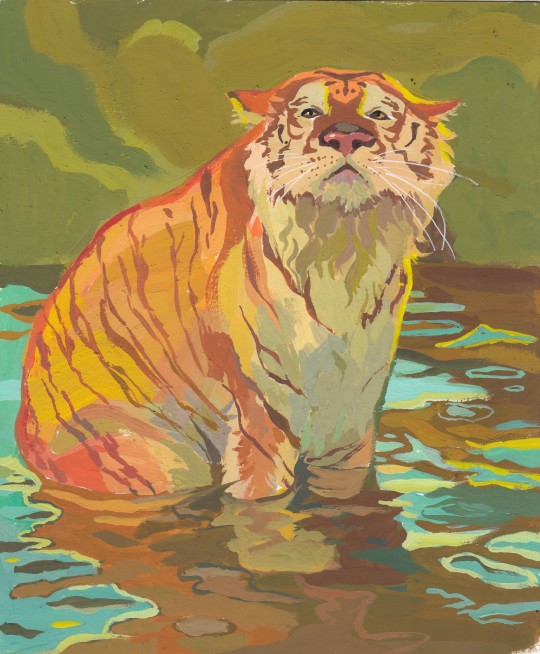Text











rdr2 characters as all 22 major arcana tarot cards :) casually posting here too like i didnt share them everywhere. working on minor arcana swords rn
8K notes
·
View notes
Photo
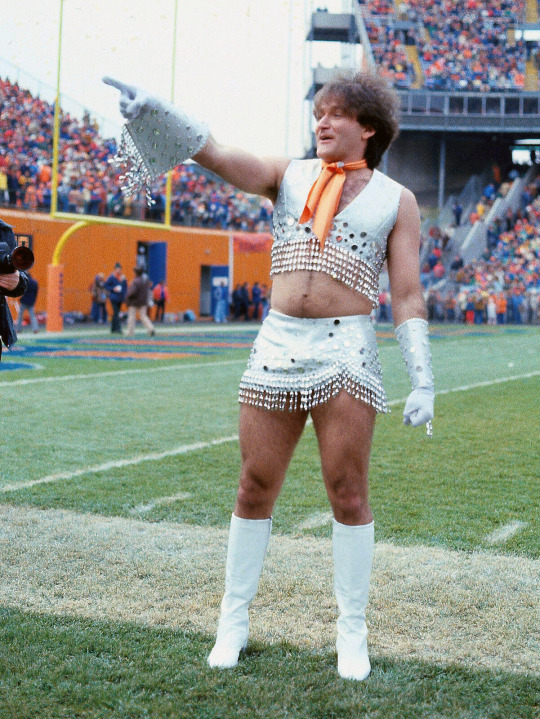
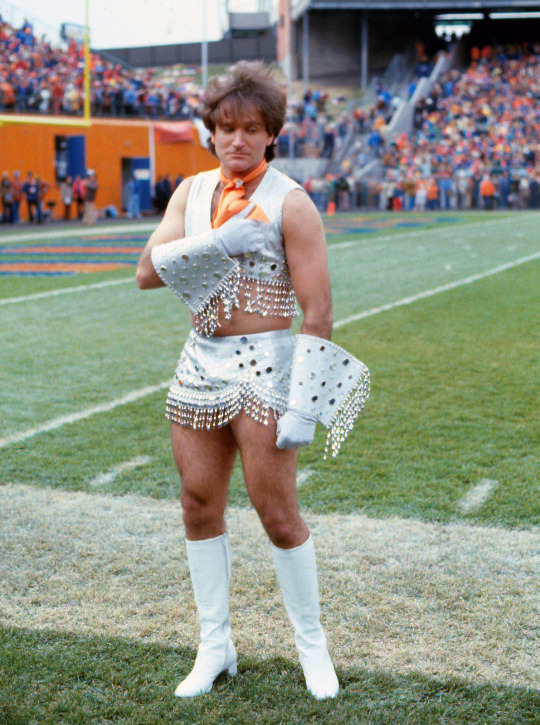
Robin Williams dressed as a Denver Broncos cheerleader in Mork & Mindy (1978), “Cheerleader in Chains”
30K notes
·
View notes
Text
These Are Not Micker Mouse: A breakdown of the Mangoball characters through the lens of Commedia Dell’Arte (by a dramaturg wannabe with too much time on their hands)
In the wake of the Dream SMP’s recent revival brought on by Dream’s latest and greatest tomfoolery, one of the most iconic, unifying, yet hitherto unknown figures of the fandom has finally made themselves known – Mangoball ( @girl-hemingway ), creator of the viral semi-eponymous SocMed AU that took the fandom by storm in 2021-2022. With its cartoonishly zany characters and hilarious one-liners, Mangoball quickly rose the ranks of popular DSMP fanfictions and remains to this day a pleasant, hilarious read that is enjoyable even if you hate the controversial content creators therein. Obligatory fuck the Dteam and Wilbur Soot. Anything good I say about their characters is a positive reflection of Mangoball’s talent and not the content creators themselves.

In this tumblr post, the author mentions Commedia Dell’arte (16-18th century Italian theatre) as a resource for writing crack fanfiction. That lit my theatre kid neurons up like Tubbo on October 16th, 2020 and so this essay was born. Enjoy my in-depth breakdown of the Mangoball characters through the lens of some of theatre’s most iconic archetypes. however im not a professional and im also not sober so if anything is wrong please just send a bomb to my house or somethingg
NOTE: While some characters or pairings are likened to specific archetypes, most of Mangoball’s characters are a mix of several.
GLI INNAMORATI - THE LOVERS
This one is obvious. No one in Mangoball’s Cheater Cheater (henceforth known as MB because I’m lazy) embodies the archetype of The Lovers more than its main pairing, Dreamnotfound.
In classic Commedia, the relationship between the Innamorati is the driving force of the entire story. They are often of high status and speak in flamboyant, flowery language; at times, they recite long poetry at length from memory and tend to sing quite often. Brought to foolishness by their hopeless infatuation for one another, the lovers often have no other personality traits besides being in love.
In MB, Dream and George are the hapless romantic leads fraught with drama and miscommunication that threatens to tear them apart. Their dialogue to and about each other borders on incomprehensibly romantic (e.g. goopsie skaboingy, boinky splurge, weeble wobble, skrunkly scribblydoinky bipsy tootsy badointy tiepnsy bip bop boppie goggiy dinty scruggly duggly big bampidointy dougly goopsie scaboinky pipupsy datootsit) and both characters associate themselves with poetry, song and dance, and other lofty forms of prose throughout the work (Dream singing the entire Mama Mia soundtrack after sleeping with George for the first time, reciting Romeo and Juliet sonnets to George despite having never read the play, George texting Quackity the La La Land script line by line by memory). They have little other personality besides the infatuation they hold for each other, but that doesn’t stop them from being enjoyable and hilarious leads that we as readers can’t help but root for.
VECCHI - THE VILLAINS
Though the Italian word Vecchi translates literally to ‘old men’, the Vecchi class of Commedia Dell’Arte characters serve as villains or opponents to the Innamorati. They are usually older characters that use their positions of power for selfish or immoral reasons. This doesn’t translate as clearly to MB as the Innamorati do, but that doesn’t mean that the story is free of Vecchi influences. Sapnap and Tommy are the story’s primary villains – Sapnap for his status as romantic rival to DNF; Tommy for his single-minded hatred of Dream that leads him to create increasingly popular Twitter spaces for the sole purpose of insulting him. Sapnap’s character is marked by his jealousy, his dishonesty, and the continued schemes he pulls to get between the main lovers. He is also the butt of several ratios and is generally regarded as a nuisance. Some of these traits are found in the Pantaleone character – although Sapnap does not possess the miserly money-hungriness that Pantaleone is known for. Anselmo is a lesser-known stock character characterized as a veccho-innamorati, or a romantic rival, but that is the extent of Sapnap’s relation to him. Il Dottore is also sometimes characterized as an adulterer, but like with Pantaleone, Sapnap lacks Dottore’s iconic traits (in his case, being a parody of the educated elite who regularly talks confidently about stuff he knows nothing about and bores the other characters offstage.)
I don’t think any Commedia character possesses such intense hatred for another character as Tommy does for Dream. He’s less of a Vecchi and moreso of a complete foil to the Innamorati – a total and utter hater, largely a flat character beyond his negative feelings for his former Compsci tutor. An Innaodio? That kid will stop at nothing to destroy Dream. I don’t think it’s even explained why Tommy hates him so much beyond his annoyance for Dream’s affections for George.
Honestly, maybe that’s enough to warrant some hatred.
Karl, Quackity, Corpse, Wilbur, and the elusive Badboyhalo are all part of the Zanni class of Commedia characters. The Zanni characters are traditionally the low-class servants of the higher-status Vecchi or Innamorati. Usually found in pairs, they are often separated into the silly and buffoonish and then into the cunning, quarrelsome, and conniving. In Mangoball, they’re the roommates/sidekicks of our main leads… apart from Badboyhalo. We’ll get back to him.
Karl and Quackity are George’s roommates; Corpse is Dream’s. Corpse is a somewhat judgemental watcher of Dream’s antics, not afraid to stir up drama or join Tommy’s hateful lives, and yet remains supportive of him overall. He is also the subject of Wilbur's odd romantic advances. Quackity regularly acts like he wants to actually kill himself over George’s romantic endeavours and regularly threatens the trio with violence or piss-related crimes (e.g. okay but im peeing on the couch!). Karl, as arguably the most rational character of the entire work, is often kinder to George than Quackity is, though his normalcy often leads to him being ridiculed (e.g. the entire group unanimously agreeing that he is the craziest among them for doing such things as eating an orange). Quackity and Karl are also the only ones to break the fourth wall and call out the story for its texting-only medium. In all honesty, they’re too smart (and not horny enough) to fit most of the Zanni archetypes. I would consider them the straight men of the work. Most of their comedy comes from their reactions to what’s going on around them.
Nothing sums up their characters more than this iconic bit:
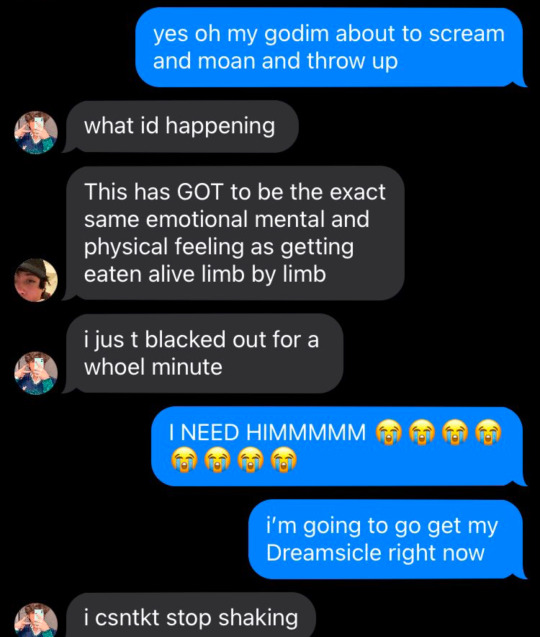
SPECIAL MENTIONS - WILBUR
The Arlecchino, or Harlequin, archetype is the base for most fool/clown characters that have risen to prominence over the course of history and is a comedic bastion in any Commedia production. Colourful and acrobatic, Arlecchino oscillates between legendary dim-wittedness and a single-minded dedication to achieving his goals. He is often abused by smarter characters, easily distracted by lust and food, and will foray into the complicated, the absurd, and the illegal to get what he wants without a second thought. While what usually sets Arlecchino apart from other Commedia archetypes is his acrobatic prowess, that doesn’t exactly translate well into written prose.
Mangoball’s Wilbur is a proven criminal, a buffoon, and also implied to be a literal alien. While hardly tolerated by the rest of the crew, he's also responsible for several of Mangoball’s iconic lines. His character is always one step behind the joke (e.g. ‘These are not micker mouse?’ – his inability to understand well-known Disney characters, which he blames on being British) and, at random intervals, acts romantically or sexually towards Corpse without any prompting. His advances go largely rejected or ignored. The other crew members frequently bully him for his antics (e.g. them letting him starve for 20 hours during the road trip) and yet make use of his complete disregard for the law when is beneficial for the plot (e.g. him breaking into a Miami villa and loaning it to two groups simultaneously without realizing). Overall, Mangoball’s Wilbur is integral to highlighting the comedic contrast between the more rational characters and the insane situations they find themselves in. He proves himself as a driving comedic force with the final tweet of the original work.
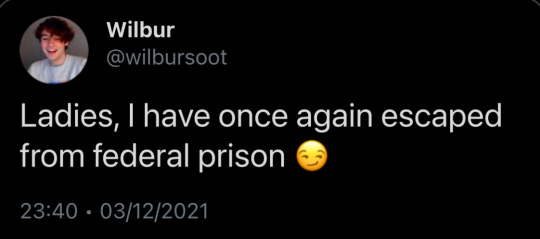
SPECIAL MENTIONS - BADBOYHALO
fuck if i know genuinely. no one in the history of ever is doing it like him im beign so serious what the ffuck is wrong with him geniunely
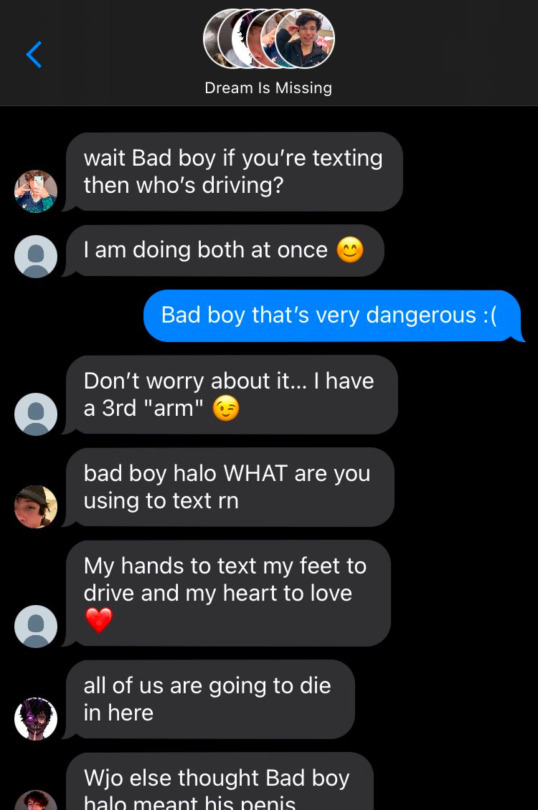
he;s fuckign everyones mother. hes eeveryones dad. hes your dad. hes my dad too i thjink. guys i hve to go call my mother rightnow im sorryyyy
944 notes
·
View notes
Photo

Folding lava in Kilauea, Hawaii. They are formed by cooling lava.
19K notes
·
View notes
Text
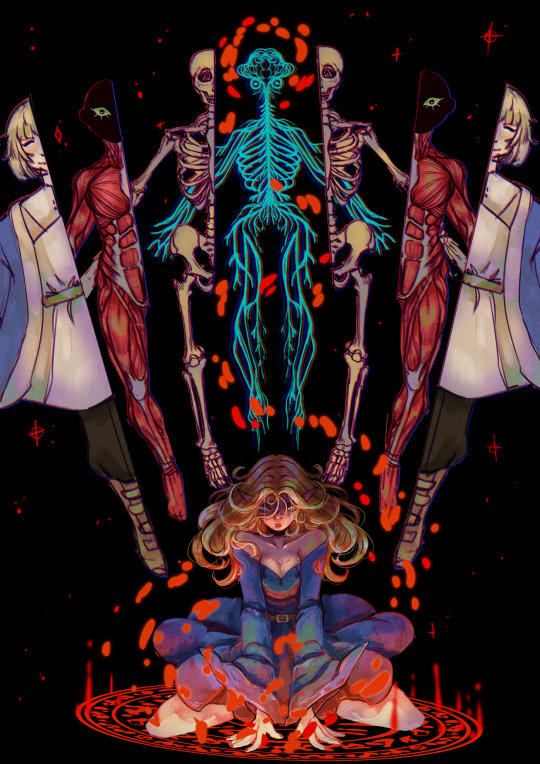
Cause My Insides are Red
And Yours are Too
10K notes
·
View notes
Text
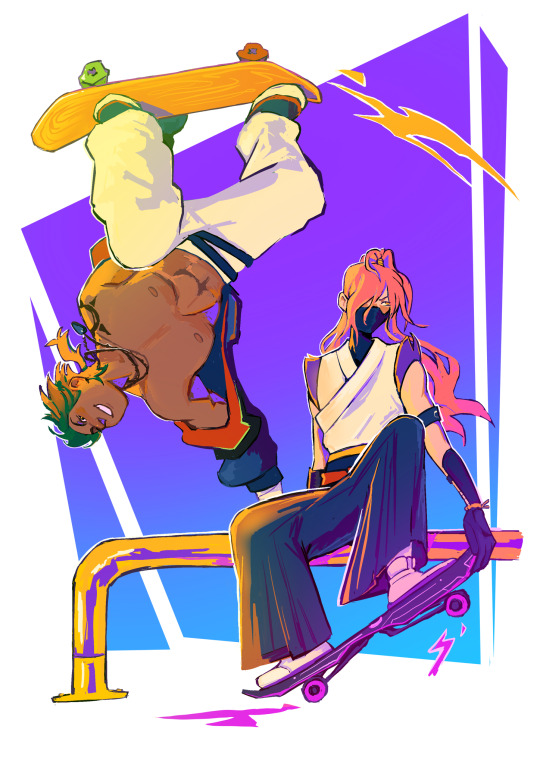
what if we skated infinitely 🍃🌸
6K notes
·
View notes
Text
Surge the Tenrec edit: The Hand That Feeds
2K notes
·
View notes
Text

chatelaine study (feat. my buddy louis de pointe du lac)
insta • twt
3K notes
·
View notes
Text

what you see is the void beyond
3K notes
·
View notes
Text
youtube
New song "The Desert" just released on YT. I'm so proud of this song. It's about Scar, framed through like, a Desert Duo-esque approach. Art by the phenomenal @cocoabats. Hope you enjoy! Lyrics under the cut!
LYRICS
I left you in the desert, left the rivers, left the sea Where the desert wind would tear the sand, like swords against the breeze Where the ghosts of who we left behind, would howl a rhapsody When I left you in the desert, I thought that you’d leave me
I left you in the desert, like the sun would leave the sky Left the bridges that we built and burned, the ones we left to die Left the hungry, left the needy, left the ever-watching eyes When I left you in the desert, you left your soul behind As you stayed there in the desert, the sun began to rise
And the desert showed you mercy And the desert held your hand And the desert killed you slowly ’Til your heart returned to sand
I left you in the darkness, where the sun can never reach Where the all-consuming silence hears the words you’d never speak Where the whispers lead to madness at the heart’s incessant beat All alone there in the darkness, where no-one heard the screams When I died down in the darkness, you died along with me
And the darkness bid you pity And the darkness set you free And the darkness killed you quickly When it dragged you down with me
I left you in the desert (in the desert) I left you in the desert (in the desert) I left you in the desert (in the desert) I left you in the desert (in the desert)
Did they ever show you mercy? Did they ever hold your hand? Did they kill you so damn slowly? That you didn’t understand? Did they look to you with pity? Did they laugh when you weren’t there? Did they think that you weren’t listening? Did they think you wouldn’t care?
I left you midst the sunflowers, with the shadows by your side Left you safe and warm and sheltered, in a world that never dies Where the past can’t be forgotten, where the story never ends
206 notes
·
View notes
Text
Ding Ding Ding* Oorder upp!!


:D
4K notes
·
View notes
Text
Hello, fellow travelers!


Our next Contributor Spotlight is: the captivating @hexisafish!
🩵💗🤍💗🩵
10 notes
·
View notes









